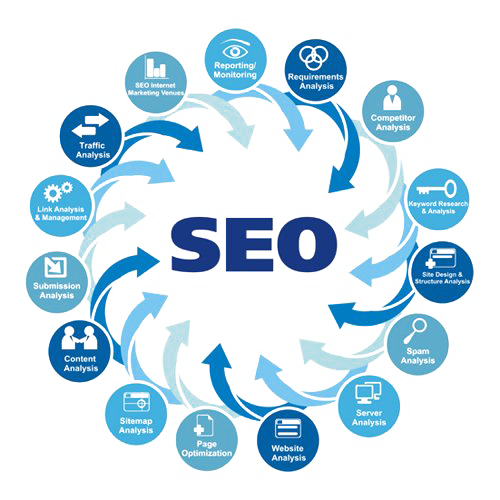
SEO consists of multiple strategies, actions, and best practices, all of which have the end goal of improving your website’s position in search engines—which is why it’s called “search engine optimization.”
There are two kinds of SEO: on-page and off-page. On-page SEO consists of anything you can control on your own website to improve your rankings. This refers to things like site speed, keyword presence, header text, and so on. On the other hand, off-page SEO consists of anything done on other websites that may influence your rankings. Generally, this only refers to links.
It takes time, knowledge of SEO, and successful implementation of the desired on- and off-page SEO factors to optimize your website for high rankings in search engines. If the collective power of your site or an individual page’s SEO is more powerful than all others, with regards to a specific query, you’ll rank #1.
Because SEO involves so many ranking factors, you can think of the #1 site as winning a triathlon of sorts. In a real triathlon, the winner of the running portion is not necessarily the winner of the entire race – and so it is the same with SEO. The site with the most links, the most pages, or the most visitors is not necessarily the #1 site. Their overall performance determines who comes out on top.
SEO is Google’s way of determining which sites deserve to rank highly for each query entered into its search engine. Without modern SEO, it would be extremely simple to manipulate the search results so that the site with the most links or the most pages—all easily generated by software—consistently ranked #1.
SEO is important because it keeps the search results fair. It reduces the ability to manipulate these results as much as possible, so that the sites appearing for each search are there because they deserve to be there. Hard work and a website that appeals to visitors correlate with high search engine rankings, so if your site meets these criteria, you’ll have a better chance at showing up in the results.
Users trust search engines, and achieving a top spot in search engine rankings signals to searchers that your site is a credible source. The higher you rank in results pages, the more clicks and traffic your site will generate. SEO also improves user experience, making it more likely for customers to become repeat buyers.
And SEO is cost-effective. Competitive industries can spend large amounts of money on paid website traffic. Of course, you can still purchase ad space, but if you’re working with a tight budget, SEO is a great way to drive qualified traffic to your site without directly paying for it.
What Search Would Be Like Without SEO
Without SEO, it’s hard to say how we would ever find websites, businesses, or the information we seek on a daily basis. The search engine results would be too easy to manipulate, and as users, we would have to look much longer and harder to find valuable sites instead of the ones simply manipulating the results to get to the first page.
Basically, SEO is important because it ensures that typical people don’t have to search for more than a few seconds to find the information or products they want. It establishes a sort of “natural order” online that would be missing without it.